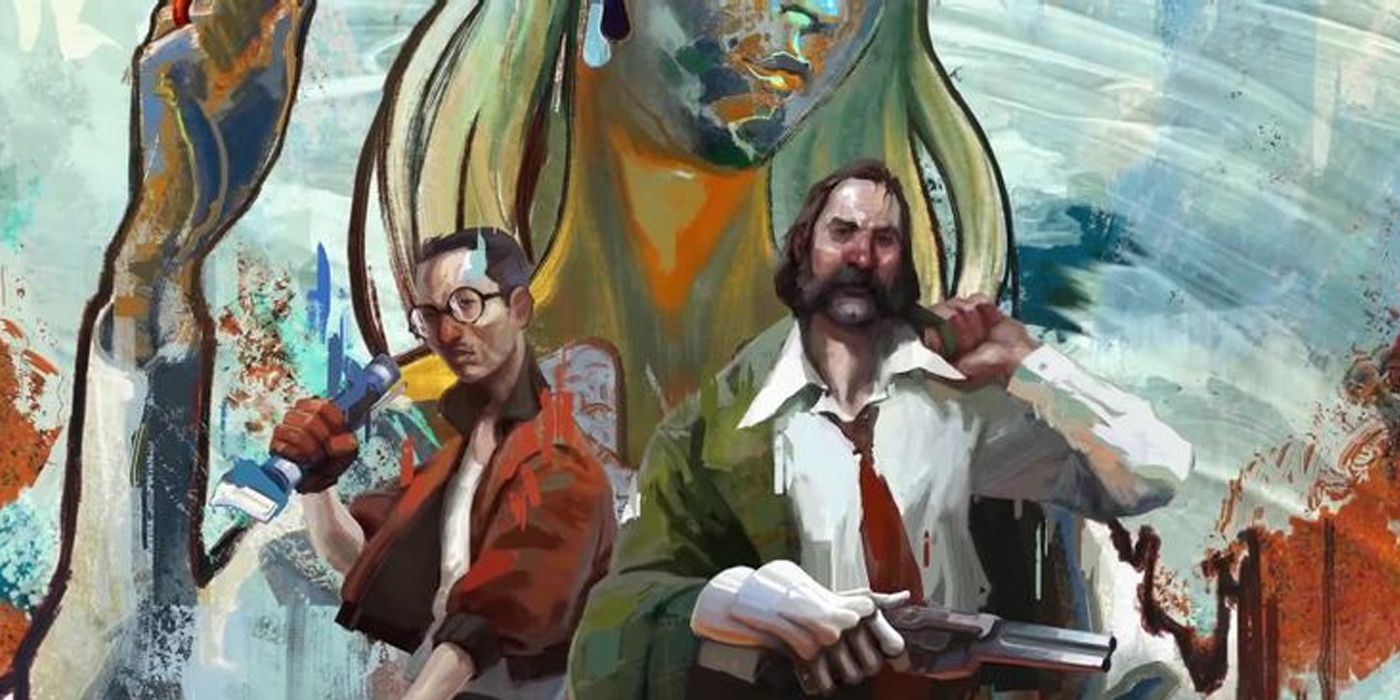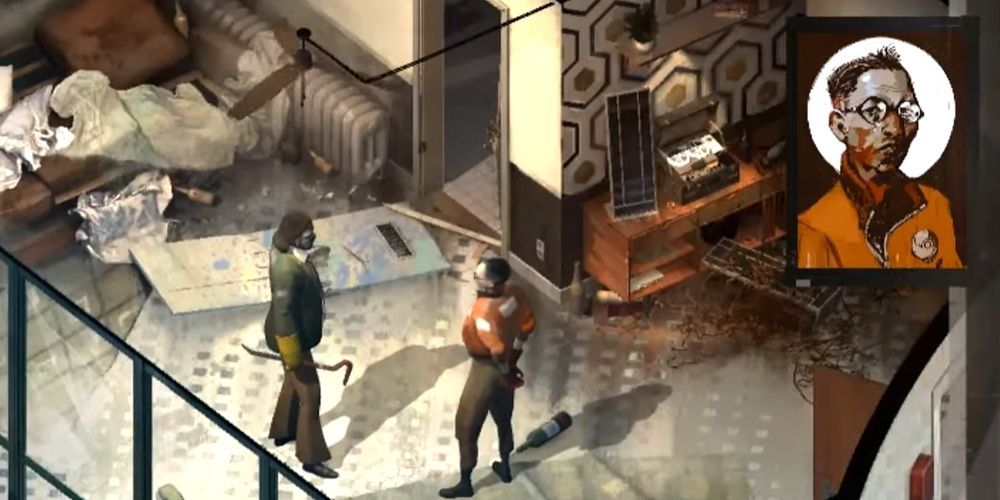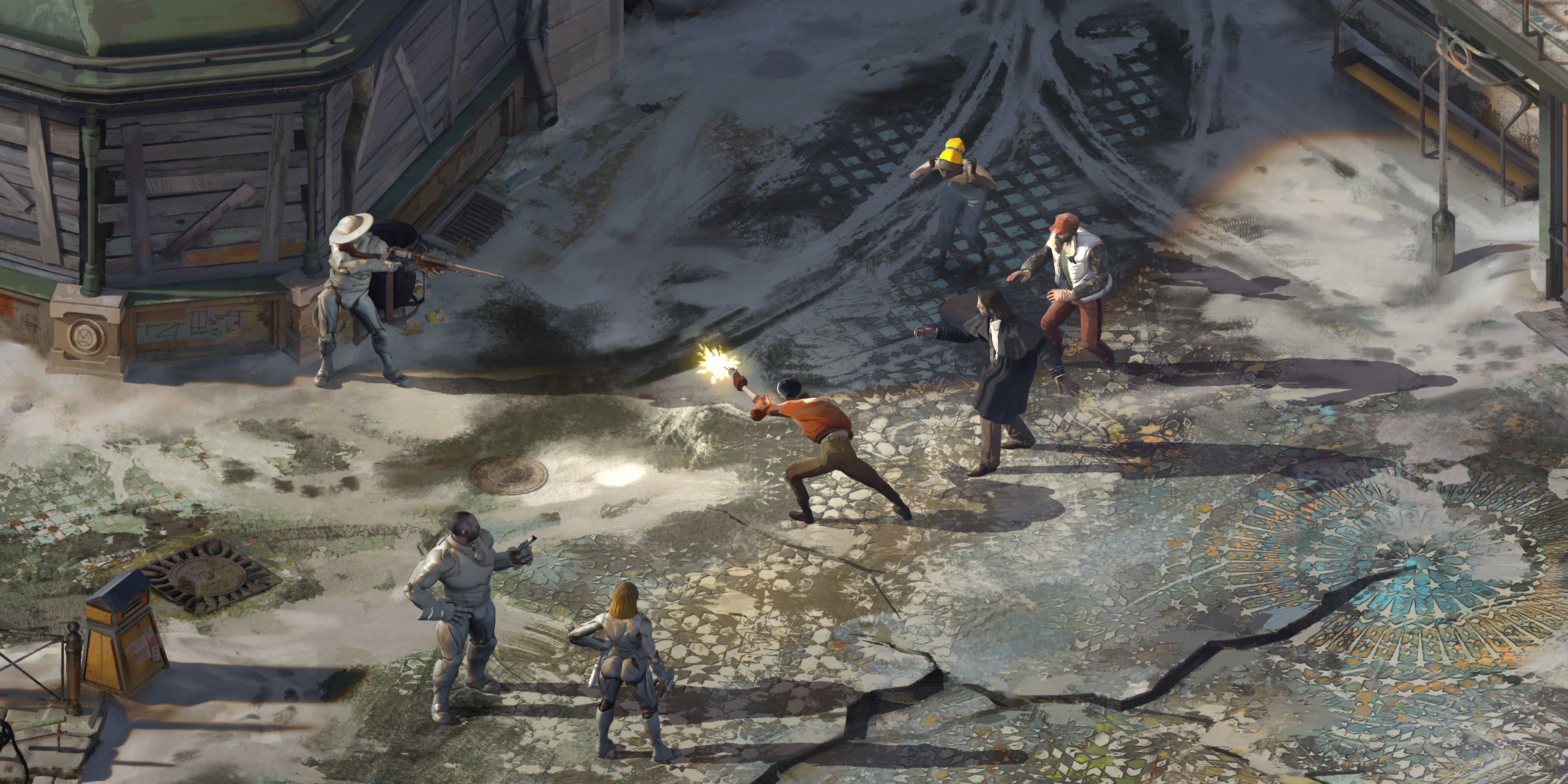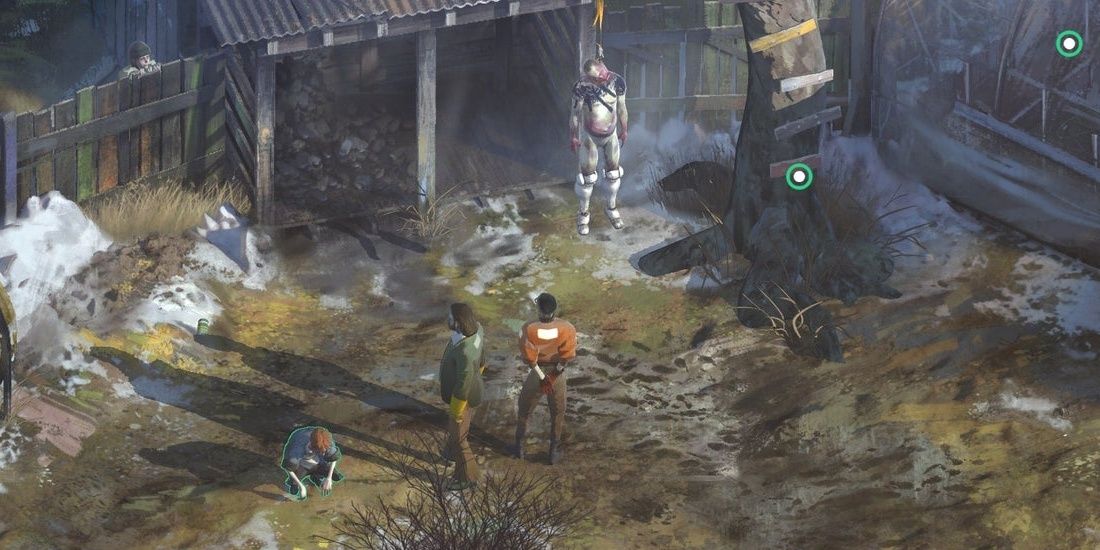Disco Elysium is a masterpiece. It’s an RPG that changed the game for text-based narratives and political commentary in the medium, and is constantly named as one of the best PC games ever made, as well as being cited as the inspiration for countless more. This weekend, however, Studio ZA/UM founder and Disco Elysium editor Martin Luiga published an explosive blog post which detailed, first and foremost, the dissolution of “the ZA/UM Cultural Association,” an organisation entirely separate from the game studio. The association appears to be the developers’ original name for their collective of creatives, a place for ideas and discussion that the developer ZA/UM, in their minds, no longer represents.
However, the more distressing news that Luiga revealed was that three founding members of the studio are no longer working at ZA/UM, and haven’t been for some months. Disco Elysium’s lead artist Alexander Rostov later confirmed on Twitter that he, writer Helen Hindpere, and lead writer and lead designer Robert Kurvitz are no longer at the studio. Luiga’s assertion is that the key developers were ousted involuntarily, and that notion set the world on fire.
To truly understand the reaction to Disco Elysium’s key figures leaving the company, you must first understand where they came from. Kurvitz, who came up with the world of Elysium, was more of an artist than a developer. He only made Disco Elysium into a game because a collaborator’s child suggested it. There’s a reason it was a book first, albeit one you probably can’t read, and before that a weird creative outlet in the vein of D&D. “My friend, we failed at so many things,” Rostov recalls Kurvitz saying. “Let us also fail at making a video game.”
The story goes that Kurvitz created the engine from scratch, and that he wrote over a million words for the game. While the concept is his brainchild, people quickly forget that there are four other writers listed in the game’s credits, and many more when you look into localisation. Piling the praise on Kurvitz, while somewhat deserved for coming up with the concept (which he admits was also collaborative), erases the work of many others.
This goes further than the writing, too. Rostov’s art for the game is iconic, but nine other artists are credited on Disco Elysium, and Rostov himself was heavily inspired by the work of Craig Mullins.
Many people were disappointed by the statement that ZA/UM put out, which offered little more than “no comment”. However, there is plenty more to take from the statement, especially the first sentence. “Like any video game, the development of Disco Elysium was and still is a collective effort, with every team member’s contribution essential and valued as part of a greater whole.”
Kurvitz and Rostov, but especially the former, are often placed on a pedestal by fans of Disco Elysium. I’m probably guilty of it myself. I’d do anything to read a translation of The Sacred and Terrible Air. But Disco Elysium was a collective effort, and as current ZA/UM employees are explaining, countless more developers who worked on Disco Elysium are still at the studio than those who were let go. They’re just probably not the ones you’ve heard of – but is their contribution worth any less because of that?
The games industry has a big problem with auteurism, and Disco Elysium is no different. We don’t know why those three developers left ZA/UM, and only have one man’s word that they were pushed. They were critical in bringing Disco Elysium to life, but so were many others. Many others who are still at the studio. It’s easy to blame the big bad corporation – they are often at fault – and especially so given Disco’s themes, but even Luiga, who published the blog post that started it all, isn’t worried about the Disco Elysium sequel.
“Nah I think that things with the sequel are actually sweet enough,” he writes in a reply to an enquiring fan. “You might even get it the way it was meant, it might take a shit ton of time but RPG fans are sorta accustomed to waiting, ain't they[?]” He also points out that the ousted developers, who he includes himself with, “can build stuff on [the ZA/UM Cultural Association’s] ruins”.
The phrase “the way it was meant” is very telling. The way who meant? Disco Elysium came from Kurvitz’s idea, sure, but it was iterated by every writer, artist, and developer who worked on the game. Maybe the sequel will match Kurvitz’s vision, but maybe it wouldn’t have even if he was still employed as lead writer and designer. While he’s not on their level of deification, the likes of Hideo Kojima and Neil Druckmann are often cited as the “creators” of Metal Gear and The Last of Us respectively. Did they create those games on their own? No. They were important in the games’ development, but so were hundreds, if not thousands, of others.
Good could come of this. Disco Elysium 2: Revachol Boogaloo could be just as good as the original. It might match Kurvitz’s vision, it might not. It might be better or worse off for whichever of those happens. In the meantime, Kurvitz, Rostov, Hindpere, and Luiga can pour their efforts into something they deem worthy of their time, something that the claws of capitalism aren’t tearing into. The positive side of auteurism is that they will probably be fine, they can probably crowdfund their next game or rely on Disco’s rabid support to somehow fund their next venture, should they choose to pursue it. Luiga says that “Kurvtiz literally can't stop pushing himself” to work harder, so it seems that he’ll produce something – game, novel translation, or otherwise – in the future. But it’s our job to not let the tens of other creators of that game be left behind because we don’t recognise their names.
Luiga signed off his blog post from an Estonian psychiatric inpatient ward. Whether that’s truly where he is, or it’s some kind of dark joke is currently unclear. Whatever your feelings about the sequel, it’s important to remember that developers are people, and we should wish them all the best, that they are, at a bare minimum, happy and healthy. That goes for Luiga, it goes for Kurvitz, Rostov, and Hindpere, and it goes for everyone still at ZA/UM, whether they worked on Disco Elysium or not. At present, nobody knows what went on at ZA/UM, so both speculation and auteurification are pointless. Disco Elysium is more than any one person, and the sequel will be just as much a collective effort.




